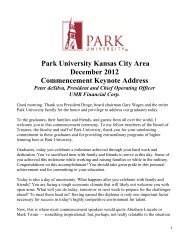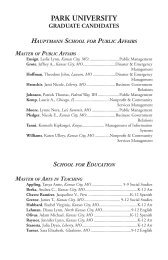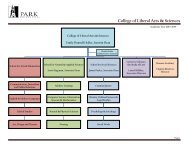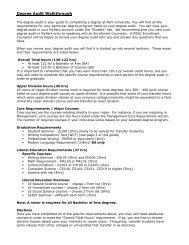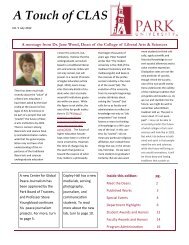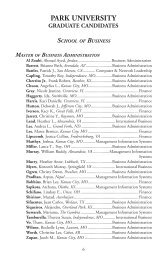How to Write a Radio Serial Drama for Social Development- PDF
How to Write a Radio Serial Drama for Social Development- PDF
How to Write a Radio Serial Drama for Social Development- PDF
Create successful ePaper yourself
Turn your PDF publications into a flip-book with our unique Google optimized e-Paper software.
Chapter Five: Character <strong>Development</strong> 79<br />
EXAMPLE<br />
12. ESAU: (RUNNING IN) It’s over... it’s all over. The president has been<br />
overthrown. Civil war has broken out.<br />
13. FATHER: (SCREAMING) All is lost. Help me...help me...Oh my God... even<br />
the gods cannot help. We are finished.<br />
14. ESAU: (AFRAID) What shall we do Where can we go I must get my<br />
money. All my money. I’m not going <strong>to</strong> let them get that. Help<br />
me...get some bags and help me get the money.<br />
15. FATHER: (WAILING) Help us someone...help us...We will be killed.<br />
Oooooh.<br />
16. BONGANI: Wait. Be quiet, my father...We will find an answer. But we must<br />
think. We must work out a way.<br />
17. FATHER: (WAILING) There is no way... we are all finished. Ooooh.<br />
18. ESAU: S<strong>to</strong>p preaching, Bongani. They’re going <strong>to</strong> rob us...steal everything<br />
we have. I’m not listening <strong>to</strong> you. I’m getting my money out of<br />
here.<br />
19. BONGANI: (FIRMLY) Be quiet, brother. Listen <strong>to</strong> me. I know a place where we<br />
can go. I have prepared this place <strong>for</strong> just such an event. Now,<br />
listen, all of you.<br />
5<br />
Revealing a character’s personality in a natural manner through<br />
dialogue—either the personal dialogue of the character or the dialogue of<br />
others speaking about that character—is a challenging task. It is much easier<br />
when writers know their characters well, which points once again <strong>to</strong> the<br />
importance of detailed profiles.<br />
Non-Characters<br />
Sometimes people who are not characters in the plots of the serial also appear<br />
in the radio program. These non-characters include the narra<strong>to</strong>r and the<br />
host.<br />
The Use of a Narra<strong>to</strong>r<br />
<strong>Write</strong>rs frequently face the question of whether or not <strong>to</strong> include a narra<strong>to</strong>r<br />
in a radio serial. A narra<strong>to</strong>r is a person who tells, or narrates, a s<strong>to</strong>ry. In a<br />
s<strong>to</strong>ry that is not dramatized, such as a novel, the characters’ lives are revealed<br />
<strong>for</strong> them by the narra<strong>to</strong>r. It is part of the very definition of a drama,<br />
however, that the characters tell their own s<strong>to</strong>ries. There<strong>for</strong>e, it can be<br />
confusing <strong>for</strong> a drama <strong>to</strong> employ a narra<strong>to</strong>r. Typically on radio, as was<br />
discussed in Chapter 3, the narra<strong>to</strong>r speaks only at the beginning and end of<br />
each episode <strong>to</strong> remind listeners of past action, introduce the coming<br />
episode, and alert them about what <strong>to</strong> anticipate the next time they tune in.




